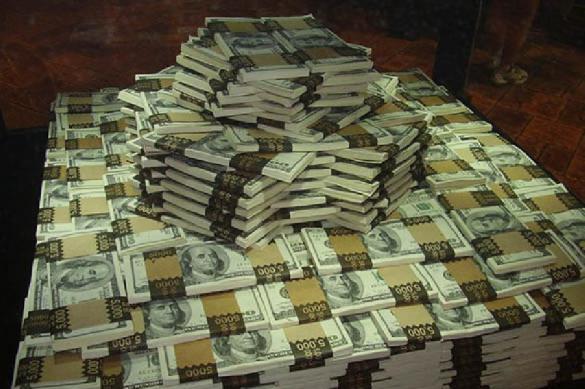Westerners teach Russian oligarchs a few good lessons they need to learn
The West unwittingly acts to Russia's benefit persecuting Russian oligarchs. Dmitry Rybolovlev, a Russian entrepreneur, president of Monaco football club, was detained on November 6 at the request of the Principality of Monaco. Monaco prosecutors accuse Rybolovlev of corruption, trading in influence and complicity in those crimes. Rybolovlev tried to show influence on the investigation of criminal cases. In particular, he tried to reach out to the Minister of Justice of Monaco to have an impact on the case of his former partner, who had stolen a large amount of money from him, Le Monde wrote.

The publication had an opportunity to take a look at hundreds of text messages that investigators had earlier received. The messages, the newspaper wrote, proved the existence of a secret ring that was working against Monaco courts in Rybolovlev's favor. The Russian entrepreneur had used fictitious contracts and offshore accounts in the Virgin Islands, Le Monde wrote.
Forbes magazine evaluated the fortune of banker and broker Rybolovlev at 6.8 billion dollars. In 2008, Rybolovlev bought Donald Trump's mansion in Florida for $95 million. The deal allegedly saved Trump from bankruptcy and became a reason for him to enter into another deal - this time with the Kremlin, Journal du Dimanche wrote. Rybolovlev had not spent even a day in the mansion, which struck American investigators as suspicious, the newspaper pointed out.
The detention of Dmitry Rybolovlev fits into the general trend of the hunt for wealthy Russians in Europe (Suleiman Kerimov, Sergey Pugachev), who keep their assets in the West and work for the benefit of Western economies. In addition to material pressure, Westerners resort to moral tools too. Thus, organizers of the economic forum in Davos refused to invite Russian businessmen Viktor Vekselberg (Renova), Oleg Deripaska (Rusal) and Andrei Kostin (VTB), whose companies had earlier fallen under US sanctions. Another well-known Russian oligarch, Roman Abramovich, was denied residence permit in Switzerland.
Yevgeny Yasin, who formerly served as Russia's minister for economy (1994-1997), president of the Liberal Mission Foundation, told Pravda.Ru that the West tries to teach Russian oligarchs a few lessons. According to the expert, Russia has passed the stage of the formation of capitalism and left negative aspects of the initial accumulation of capital behind. "Now they are trying to make them better from different sides - from the west, from the east, and inside Russia as well," Yevgeny Yasin told Pravda.Ru.
Sergey Markov, Director of the Institute for Political Studies, believes that it goes about the state policy of Western countries to process Russian oligarchs to make them topple Vladimir Putin and replace him with a pro-American politician. Russian billionaires are wealthy from a Russian, but not from a Western perspective, the expert noted.
"In today's Russia, many people are concerned about the issue of social justice. They do not like the idea that Russian oligarchs profit from plundering the budget and moving their capitals from Russia. People do not like the fact that Russian oligarchs support foreign, but not Russian sports clubs. Let the Westerners pinch them," Sergey Markov told Pravda.Ru.
A couple of days ago, representatives of the board of directors of Rusal (Russian Aluminium) said that the corporation was leaving the New Jersey offshore to Russia. President Putin earlier warned Russian businessmen that big business would have to leave offshores.
Subscribe to Pravda.Ru Telegram channel, Facebook, RSS!


